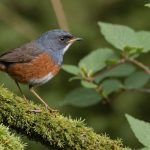Importance of Barn Owls in UK Agriculture
With their silent flight and adept hunting skills, barn owls are vital to controlling rodent populations in UK farmlands. These magnificent creatures consume thousands of pests annually, offering an ecological benefit by reducing the need for chemical pest control, which aligns with goals of sustainable farming.
Ecological Benefits of Barn Owls
Barn owls play a crucial role in maintaining biodiversity and ecological balance. By managing rodent populations naturally, they support a healthier ecosystem. This is particularly useful in agricultural settings where maintaining a balance is essential to safeguarding crops. By keeping pest numbers in check, barn owls indirectly promote healthier plant growth, benefiting various other wildlife species in the process.
Dans le meme genre : Empowering UK Landowners: A Guide to Reviving Natural Habitats for Endangered Species
Challenges in Modern Agricultural Landscapes
Despite their importance, barn owls face numerous challenges in today’s modern agricultural landscapes. Habitat loss due to urbanisation and intensive farming practices has significantly impacted their populations. Fields devoid of hedgerows and grass margins reduce hunting grounds, while road traffic poses further threats. Efforts focused on barn owl conservation are crucial to reversing these trends. Initiatives can include creating nest sites and restoring habitats, thus fostering a supportive environment for these essential birds.
Encouraging barn owl conservation could fortify their presence in agriculture, further contributing to the sustainability of farming practices.
Avez-vous vu cela : Revitalizing UK Urban Gardens: Innovative Strategies to Boost Declining Pollinator Populations
Sustainable Agricultural Practices
Embracing sustainable farming methods not only preserves our planet but also supports thriving ecosystems. With a focus on eco-friendly practices, wildlife-friendly agriculture is within reach, benefitting both farmers and nature.
Crop Rotation and Soil Health
Implementing crop rotation plays a pivotal role in sustaining soil health and creating suitable habitats for wildlife such as barn owls. This practice enhances soil nutrition by varying the crops, thus preventing nutrient depletion. Incorporating diverse crops like legumes and grains aids in supporting a wider range of wildlife by providing different types of cover and food sources. For instance, UK farms have successfully adopted crop rotation with impressive results: healthier soils and boosted biodiversity.
Integrated Pest Management (IPM)
Integrated Pest Management (IPM) offers a revolutionary approach to pest control, which is crucial for barn owl conservation. This method focuses on reducing pesticide reliance by using natural pest predators and biological control agents, such as beneficial insects. Farmers implementing IPM have noticed a significant decrease in chemical usage while maintaining effective pest control, ensuring safer environments for barn owls and other wildlife.
Water Management and Eco-Friendly Irrigation
Promoting sustainable water practices is essential for protecting aquatic ecosystems. Innovative irrigation methods, such as drip and subsurface irrigation systems, help reduce water wastage and maintain moisture in the soil. These techniques have been implemented with great success on farms, resulting in water conservation and enhanced wildlife habitats.
The Role of Farmers in Conservation
The participation of farmers in conservation efforts is vital, especially when it comes to protecting valuable habitats such as those of barn owls. By proactively engaging in wildlife stewardship, farmers can create environments that support biodiversity while maintaining productive agricultural practices. Simple actions such as preserving hedgerows and reducing pesticide use can significantly enhance habitats for barn owls and other species.
Promoting community engagement is also crucial. When farmers collaborate with local communities, they can share resources and ideas that benefit both wildlife and agriculture. Participating in community programs and forming partnerships with conservation groups fosters a sense of collective responsibility. These initiatives often include workshops or information sessions that educate about sustainable practices and inform on the importance of maintaining wildlife habitats.
Farmer-led initiatives often prove to be incredibly effective in promoting sustainable agriculture. These practices are tailored to the unique needs of the local environment and the community, ensuring practical and feasible solutions. By emphasizing wildlife stewardship through these initiatives, farmers can lead the way in conservation efforts. Embracing such roles not only aids in maintaining biodiversity but also enhances the resilience of the agricultural landscape against environmental changes. Moreover, these initiatives emphasize the role of farmers as stewards of the land, committed to harmonizing agricultural productivity with ecological balance.
Case Studies of Successful Practices
Exploring effective strategies in agriculture reveals numerous success stories. By examining real-life examples, one can understand the practical implications of sustainable farming practices. These impact assessments provide valuable insights.
Farm A: Integrated Approach to Farming and Wildlife
Farm A exemplifies how sustainable agriculture can coexist with wildlife conservation. Implementing an integrated approach, the farm combines eco-friendly techniques such as crop rotation and natural pest control. These practices have notably benefited barn owl populations, crucial predators in maintaining the farm’s ecosystem balance.
By increasing barn owl habitats, Farm A has witnessed an upswing in local ecosystem health. This symbiotic relationship illustrates the importance of considering biodiversity in farming. Lessons from Farm A emphasize the need for farmers to embrace wildlife-friendly practices, offering:
- Enhanced pest management through natural predation
- Improved soil fertility via diversified cropping
- Increased community engagement through educational initiatives
Farm A’s success story encourages other farmers to replicate this model, merge ecological awareness with agricultural productivity, and continue assessing their practices’ ecological impact.
Farm B: Community Supported Agricultural Practices
Farm B shines in engaging local communities through its agricultural practices. By involving locals in decision-making and farming activities, Farm B ensures the community has a vested interest in wildlife conservation. The collaborative efforts of Farm B have shown remarkable results, such as an increase in bee populations vital to pollination.
Future plans secure the sustainability of these efforts, including introducing educational programs to raise awareness and involve more community members, thus fostering a culture of conservation.
Expert Opinions and Research
In the realm of wildlife conservation strategies, aligning with expert insights can be crucial for making informed decisions. Recent research findings provide a wealth of guidance for UK farmers aiming to implement sustainable practices. Experts recommend integrating measures like agroforestry, which not only boosts biodiversity but also enhances soil health, proving beneficial for both the environment and agriculture.
Recent studies underscore the positive impact of these strategies. For example, diverse crop rotation and minimizing pesticide use have been shown to increase pollinator populations. This is crucial, as healthier pollinator communities lead to more robust crop yields, creating a win-win scenario for farmers and the ecosystem alike.
The analysis of long-term ecological outcomes indicates that consistent conservation efforts lead to improved habitat connectivity and resilience against climate change. By adopting these strategies, farmers can bolster their land’s productivity while simultaneously contributing to broader environmental health. This dual benefit underscores the value of incorporating expert-driven practices into everyday farming.
Incorporating these wildlife conservation strategies not only safeguards biodiversity but also ensures a sustainable agricultural future. Continued engagement with these expert insights will likely yield further benefits, highlighting the importance of ongoing research and adaptation.
Actionable Tips for Farmers
When it comes to maintaining farm environments, making small adjustments can be tremendously beneficial. Simple modifications could include creating nesting spaces for barn owls, who are natural pest controllers. Farmers could implement practical strategies like installing owl boxes at elevated points, which provide essentials like security from predators and weather protection.
Enhancing Farm Environments for Barn Owls
Introducing native plant species, such as hedgerows, can significantly enhance a farm’s biodiversity. These recommended plants offer shelter for barn owls and attract a variety of prey, crucial for their survival. Implementing these modifications requires minimal effort and finances but significantly assists in preserving the delicate ecosystem balance.
Farmers seeking to enhance habitats can access various farmer resources, including guidance from local wildlife organizations. These groups provide both educational materials and hands-on assistance, tailored to specific farm environments.
Educational Resources and Support Systems
Numerous programs focus on equipping farmers with the knowledge to adopt sustainable and conservation-focused practices. Such conservation tips are often available through government initiatives, offering incentives for those willing to implement green methodologies. Connecting with these programs and organizations enables farmers to contribute to wildlife preservation while optimizing their agricultural practices. Educating the community creates a robust support system, ensuring sustainable methods are shared and enacted effectively.











